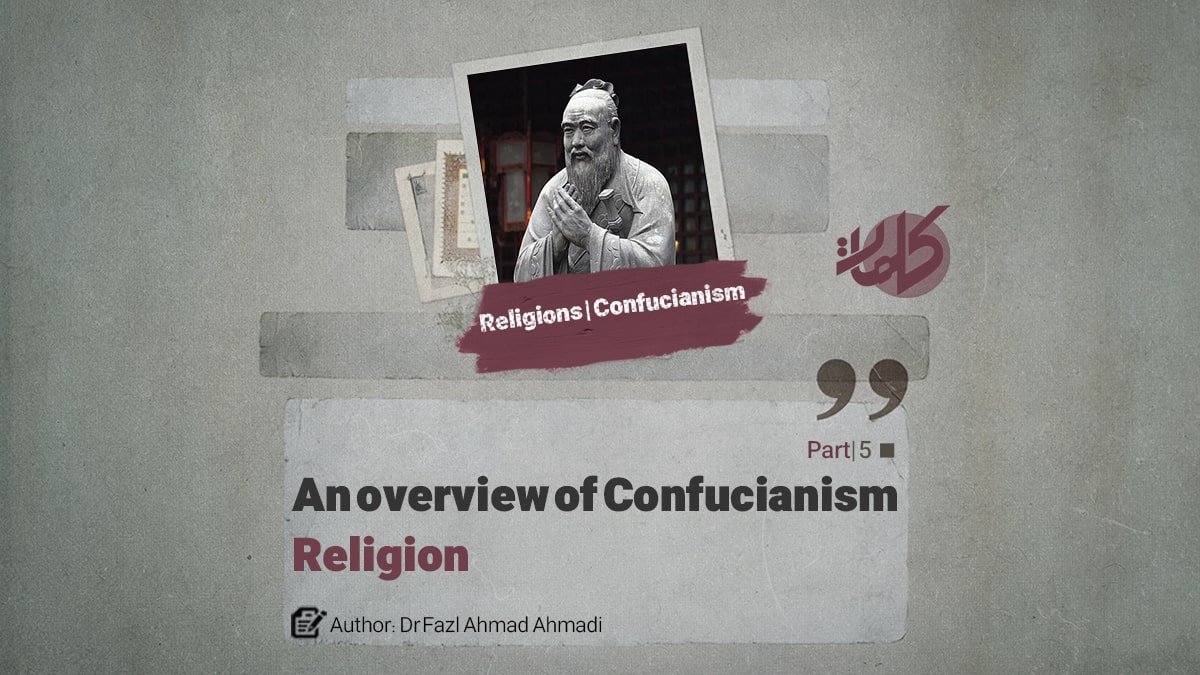
Author: Dr. Fazl Ahmad Ahmadi
An Overview of “Confucianism Religion'”(Part 5)
Sacred Books of Confucianism
Confucius was left with five books compiled by his students. The Chinese also attributed four more books to him. The sacred books of Confucius are: “Analects” and “Five Kapengs.” According to the book of Confucius, we can say that he was not a religious teacher. Rather, his teachings were only for learning the way and customs of a worthy life. With this method, he was able to attract a large number of people. Today, about five hundred million people follow him through his books.
Regardless of the books attributed to Confucius himself and the books that were attributed to him later, six ancient books are generally the key to understanding the teachings of Confucius, which are mentioned below:
1. Shujing or the Book of History: This book contains Confucius’s historical accounts of the ancient dynasties of China, which reach one hundred documents, the time period of these documents is related to the years of the twenty-fourth century BC to the eighth century BC, the reason for the collection of these documents by Confucius This was so that his students would be aware of the facts about the causes of the rise and demise of dynasties.
Shih Jing or Book of Poems/Songs: This book contains a collection of popular poems written in the five hundred years between the beginning of the Jo Dynasty (12th century BC) and the Spring and Autumn period (8th or 6th century BC). Confucius handpicked 305 poems out of more than 3000 poems and grouped them under four headings related to different topics.
Yao or Music: In the time of Confucius, music was closely related to poetry, so he compiled a collection of ancient poems, composing a song for each one he finally chose.
Li Jie or Book of Rituals: (Book of Rituals is a chart of social behavior) of royal dynasties and people of ancient China.
Yi Jing or Book of Changes: The content of this book is an imaginary system of philosophy, which is based on eight three lines, these eight three lines are made of triple combinations or arrangements of a continuous line and a broken line, one of which is necessarily repeated. to make a three-line.
Chunqiu or Annals of Spring and Autumn: This book is a chronological account of the important events of the state of Lu, from the first year of the reign of King Yin [722 BC] to the fourteenth year of the reign of King Ai [481 BC]. This “spring and autumn” almanac is derived from this ancient tradition, in which the year, month, day and season were given before each list in which that particular event occurred.
According to the mentioned works, it is clear that Confucianism is not limited to religious teachings; Rather, it includes various topics including religious, moral, political, social and even economic. In none of the mentioned works, the subject of the unit has not been discussed.
continues…


